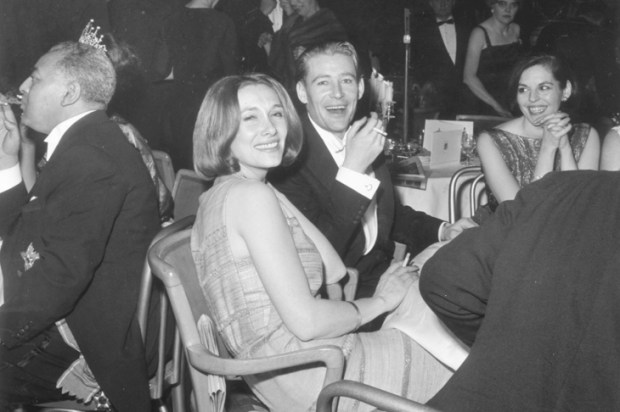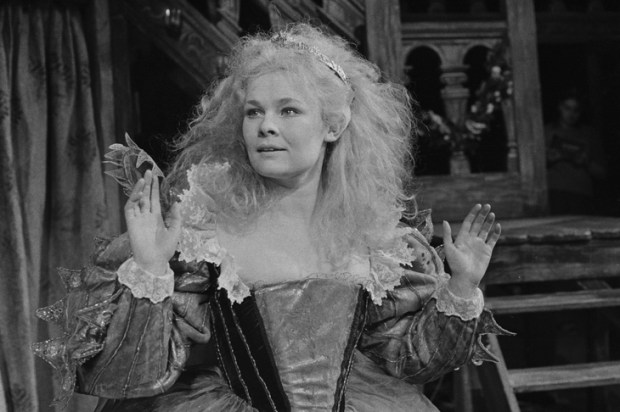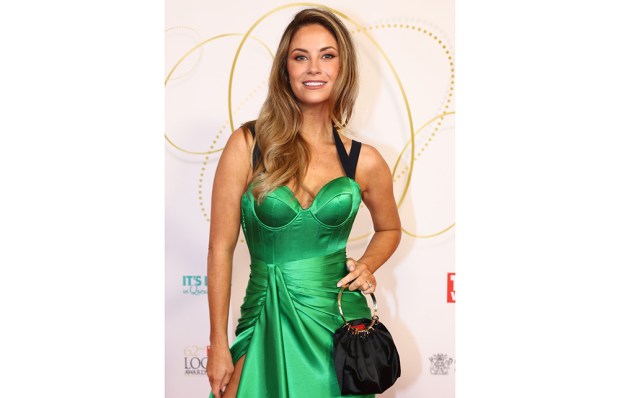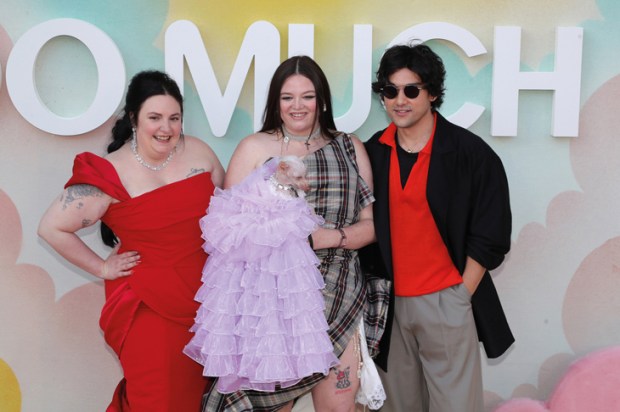You would think that Andrew Bovell, the man who wrote Lantana, would not be subject to the petty indignities of an age of conformism. But no, his extraordinary work When the Rain Stops Falling seen years ago at Melbourne’s Malthouse with all its surprises left intact was staged by Flinders University Performing Arts Society in July with a set of warnings which effectively gave away the plot because it might shock people. Given that shock and graphic surprise is integral to the play’s structure, this was barbarous. Imagine if a child seeing King Lear for the first time was subjected to a warning about the ensuing horrors. Andrew Bovell is rumoured to have had one of his plays knocked back by one of the major state theatre companies. And with these crazy warnings you wonder why Bovell with his ability to work spells in dark places bothers.
There’s no denying the power of dramatisation apropos of fiction when it does work. Trent Dalton’s Boy Swallows Universe was a runaway success as a novel and was then given a boost by the Queensland Theatre Company’s 2021 adaptation of the book and then in turn by the Netflix streamer (which has a record number of Logie nominations) and which seems to represent the highest point of articulation of Trent Dalton’s vision. He’s not leaving it at that however but is working with the Queensland Performing Arts Centre on a set of dramatised stories about love which seem to have an arresting and poignant emphasis on impediment and imperfection. Dalton has the ability to travel through realms of darkness and inadequacy while staying true to the light of his vision. Needless to say this does not guarantee magic lantern shows – one of his books read for the Prime Minister’s Fiction award seemed ‘literary’ in an unhelpful way as if the ghost of Dylan Thomas kept getting in his way but often he seems a master of the point where the popular and the clairvoyant meet.
By the way, apropos of nightmare warnings there are memories of horrors alluded to ahead. In childhood there was the reference to Elizabeth Taylor saying in John Huston’s film of Carson McCullers’ Reflections in a Golden Eye, ‘Cutting off her nipples with a pair of garden shears. You call that normal? My God! Garden shears.’ And it took your critic years to steel himself to watch Ingmar Bergman’s Cries and Whispers with the great Liv Ullman because Bob Ellis had announced precisely what form of intimate physical atrocity she had visited upon herself.
But let’s allow for the power of surprise. It’s good to see that Lyric Opera and Theatre Works are doing an operatic version of Helen Garner’s The Children’s Bach. We’re told – is it in the epigraph? – that Athena is the Goddess of War and Needlework and the extraordinary stylistic elan of this book made a lot of people realise that Helen Garner was an upper-level shapely realist, not the slap-it-down diarist she had been accused of being in Monkey Grip (later in one of her moments of nearly ornery confessionalism she admitted this was what she had been doing in Monkey Grip). Still, The Children’s Bach has a seal of the confession which relates to the jewel-like quality of the art manifested – as if a group of intimately known figures were to be lifted from a knockabout biographical context and made geographically viable in a wildly different scenario.
You could know all the originals of the characters in The Children’s Bach and still have your breath taken away by the formal brilliance of the realisation. This is the Helen Garner who asks for comparison with Raymond Carver. Of course, opera – in fact music of any kind – works to a grid of formal expressiveness that makes the feeling seem inevitable. That will be true with a Mozart opera – with The Marriage of Figaro or Don Giovanni – or a towering performance of a modern opera such as Jon Vickers singing Benjamin Britten’s Peter Grimes which Michael Shmith once said could scare the sharks from the sea. And, of course, it would be true of serious rock music: Joni Mitchell, Bob Dylan, Leonard Cohen and Nick Cave who has spoken recently of his son’s death. Then there is Christine Anu’s grandly haunting hymn to her Torres Strait homeland.
Apart from the opera of The Children’s Bach there are concert performances scheduled of Rodgers and Hammerstein’s second musical Carousel at Sydney’s State Theatre (3 and 4 September) and at Melbourne’s Princess Theatre (7 and 8 September).
Carousel was done on Broadway in 1945 by the Oklahoma! team of Rouben Mamoulian as director and Agnes de Mille as choreographer. It was Rodgers’ favourite score with the beautiful ‘Carousel Waltz’ and ‘You’ll Never Walk Alone’ – done by the Metropolitan Opera star Renée Fleming on the 2018 cast recording and to be sung by the veteran Marina Prior at the Australian concerts with Anna O’Byrne (Eliza in Julie Andrews’ My Fair Lady revival) as Julie. It’s not hard to see why the Oxford Companion describes ‘If I Loved You’ as the the most perfectly integrated piece of music drama in the American theatre and why Billy Bigelow’s ‘Soliloquy’ is thought of as the moody high point of dramatic introspection in the perfect arch it traces between ‘My boy Bill’ and ‘What if he is a… girl?’. The original Billy was the tenor John Raitt and there was a mid-1950s studio recording with the magnificently equipped Verdian baritone Robert Merrill – the other half of the Jussi Björling ‘The Pearl Fishers’ duet. Robert Goulet, the original Lancelot in Camelot, had a go at it on the television and in the film version with Gordon MacRae – the very dramatically flexible light baritone who was Curly in Fred Zinnemann’s Oklahoma! and very easy on the ear even if the direction of the film is a bit picture postcard. Thirty years ago when his ‘operatic’ voice was still intact Anthony Warlow was touted as someone who could re-animate the role by a crossover opera director such as Ian Judge.
It’s hard to see why Carousel is being billed as rarely performed. It’s absolutely central to the Rodgers and Hammerstein canon and it should be given a full production like Trevor Nunn’s Oklahoma! in 1988 when people knew Hugh Jackman as just a voice.
Got something to add? Join the discussion and comment below.
You might disagree with half of it, but you’ll enjoy reading all of it. Try your first month for free, then just $2 a week for the remainder of your first year.













